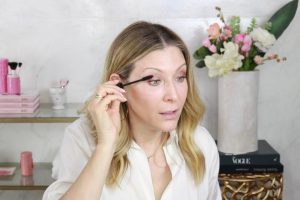Most recently updated 1/11/21
Roses have been spoiled with attention over the centuries for their prized beautifying benefits. Beneath their gentle petals, however, sits the tiny-but-mighty powerhouses known as rosehips. And these incredibly versatile, skin-transforming pods are now stepping out of the shadows to get their due.
First off, what is rosehip oil?
Rosehip oil — also known as rosehip seed oil — “comes from the small fruit that sits under the rose flower itself,” notes Dr. Joshua Zeichner, M.D., director of cosmetic and clinical research in dermatology at Mount Sinai Hospital in NYC. Within the fruit are little seeds that, when pressed, produce a beautifully rich, orangey-pink tinted oil.
How exactly does rosehip oil benefit your skin?
Well, how much time do you have? The beauty of rosehip oil is that its benefits are plentiful, and for pretty much all skin types. Here are the highlights:
It’s a powerful moisturizer
It may seem obvious that an oil makes for an effective moisturizer, but rosehip oil is an overachiever in this way. “It’s comprised predominantly of polyunsaturated fats,” says Dr. Zeichner, referring to the essential fatty acids omega-3 and -6. These oils make themselves right at home on your skin’s barrier, mimicking the lipids naturally found there, filling in any cracks, and keeping hydration locked in for a supple and soft texture.
It’s ideal for oily and breakout-prone skin
Oil can benefit oily skin? It’s counterintuitive, but true. “While hydrating and protecting the skin, the other advantage of polyunsaturated fats is that they do not tend to block the pores,” says Dr. Zeichner, “making them useful even in people with oily and breakout-prone skin.” Rosehip oil’s high concentration of linoleic acid, a form of omega-6, is particularly helpful here: Research shows breakout-prone individuals are deficient in it, and that its application can reduce the size of blemishes.
It smooths the appearance of wrinkles
Rosehip oil is rich in something called trans-retinoic acid — a derivative of vitamin A that’s been produced synthetically as retinoids since the 1970s to treat both acne and aging skin. (You may be more familiar with retinol, the over-the-counter version of the ingredient.) Data indicates that it speeds cellular turnover and boosts the production of collagen, the protein that gives skin structure and support, resulting in firmer skin and less wrinkles.
The downside with synthetic retinoids, however, is that they’re typically stabilized with controversial chemicals like parabens and BHT. And they can aggravate skin: “While retinol is the gold standard anti-aging ingredient, it unfortunately can cause irritation in many people,” notes Dr. Zeichner. “Rosehip oil, while not as potent, may offer similar benefits, and also won’t cause as much, if any, skin irritation,” he adds. And research backs this up. Rosehip has been shown to reduce the look of crow’s feet (fine lines along the corners of the eye) and inhibit MMP-1, an enzyme that breaks down collagen.
It can visibly reduce hyperpigmentation and make skin look brighter
“Rosehip oil has been shown to lighten dark spots and even skin tone,” says Dr. Zeichner, “which is why it’s commonly incorporated into sunscreens, serums, and moisturizers.” One way it does this is through boosting cellular turnover, which we mentioned earlier — this action replaces damaged (and in this case, hyperpigmented) skin cells with fresher, newer ones.
The other significant method, though, is through its rich antioxidant content. In addition to vitamin A, the all-important source of that trans-retinoic acid, rosehip oil also contains vitamin C, generally considered the most data-backed antioxidant for skin. Together, they inhibit the free radical damage from the sun and the environment that shows up as dark spots on your skin, helping to preserve an even and luminous skin tone.
FYI: Not all rosehip oils are equal
Two varieties of rosehip serve as the source for most oils: rosa canina and rosa rubiginosa. The majority of formulas leverage the canina, also known as dog rose. Rosa rubiginosa, however, tends to be more nutrient-rich. It boasts higher levels of youth-boosting trans-retinoic acid and sebum-balancing omega-3 and omega-6 fatty acids — but it contains less pore-clogging omega-9 fatty acid, making it ideal for both aging and breakout-prone skin, and the rosehip oil of choice for the NakedPoppy Revitalize Organic Facial Oil. Not sure which variety your rosehip oil contains? Simply check the ingredient list on the back of the bottle. (And then maybe consider an upgrade.)
How to use rosehip oil
As Dr. Zeichner mentioned, you can find rosehip oil in virtually all types of skincare products, from sunscreen to serum. But its original form — blended in a facial oil — is undoubtedly the purest. Facial oils have the benefit of not requiring the adulteration (like the addition of components like emulsifiers) that lotions and creams do, so it’s pretty intuitive for them to be clean.
Your best bet is to find one that’s blended with a few other plant oils, like the NakedPoppy Revitalize Organic Facial Oil, to get the widest array of skin benefits. Simply add a few drops to the palm of your hand, gently rub your hands together, and massage onto your skin morning and night for better-looking skin now — and later.
Click here to shop the NakedPoppy Revitalize Organic Facial Oil.
Get “shockingly accurate” clean beauty picks. Take your beauty assessment.
Shop the story:
References
[1] Breakout prone individuals are deficient in linoleic acid:
https://www.ncbi.nlm.nih.gov/pmc/articles/PMC2943135/
[2] Application of linoleic acid can reduce the size of blemishes:
https://www.ncbi.nlm.nih.gov/pubmed/9692305
[3] What is trans-retinoic acid?:
https://aocs.onlinelibrary.wiley.com/doi/abs/10.1007/s11746-006-5013-2
[4] Trans-retinoic acid may speed cellular turnover and boost collagen production:
https://www.ncbi.nlm.nih.gov/pmc/articles/PMC2699641/
[5] Rosehip has been shown to reduce the look of crow’s feet and inhibit MMP-1:
https://www.ncbi.nlm.nih.gov/pmc/articles/PMC4655903/
[6] Vitamin C is the most data-backed antioxidant for skin:






Comments